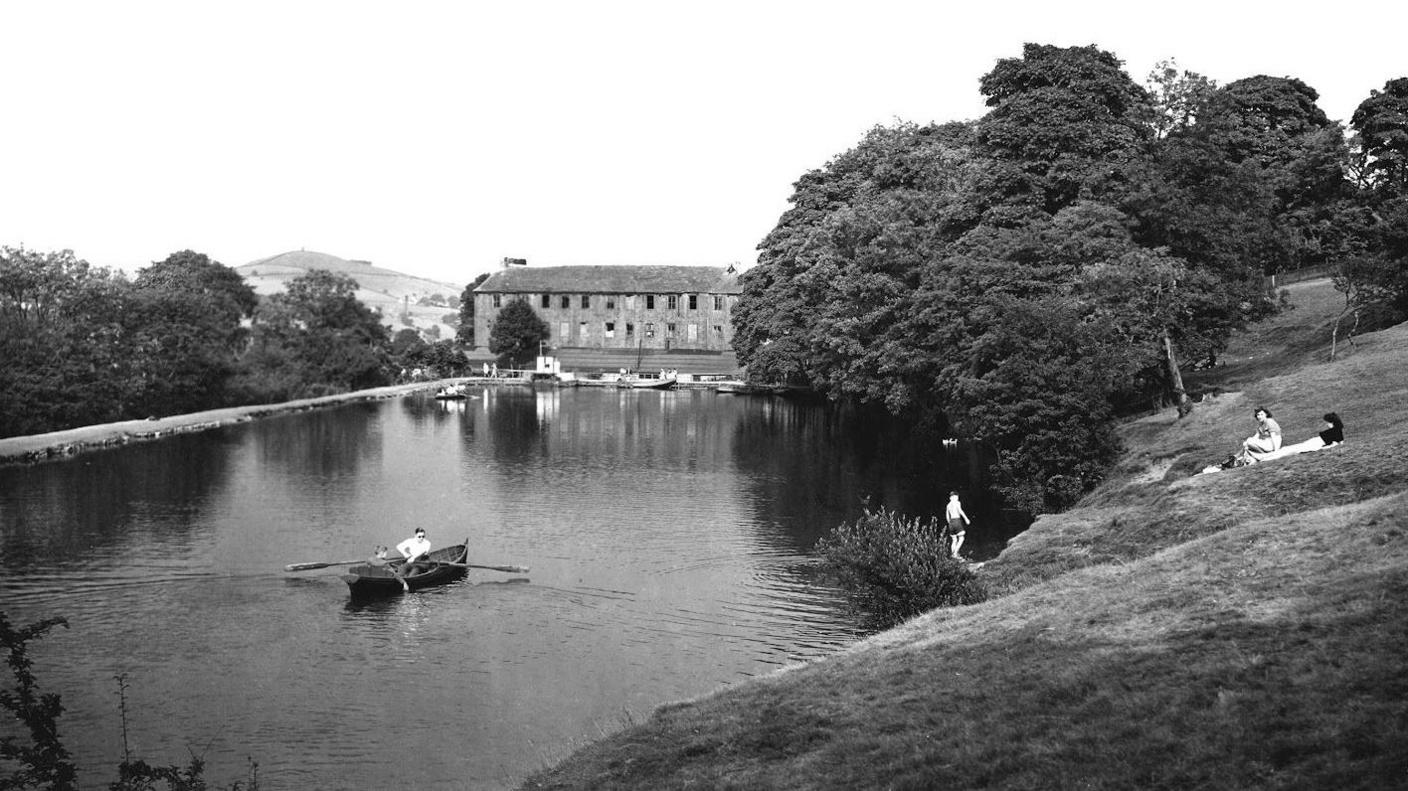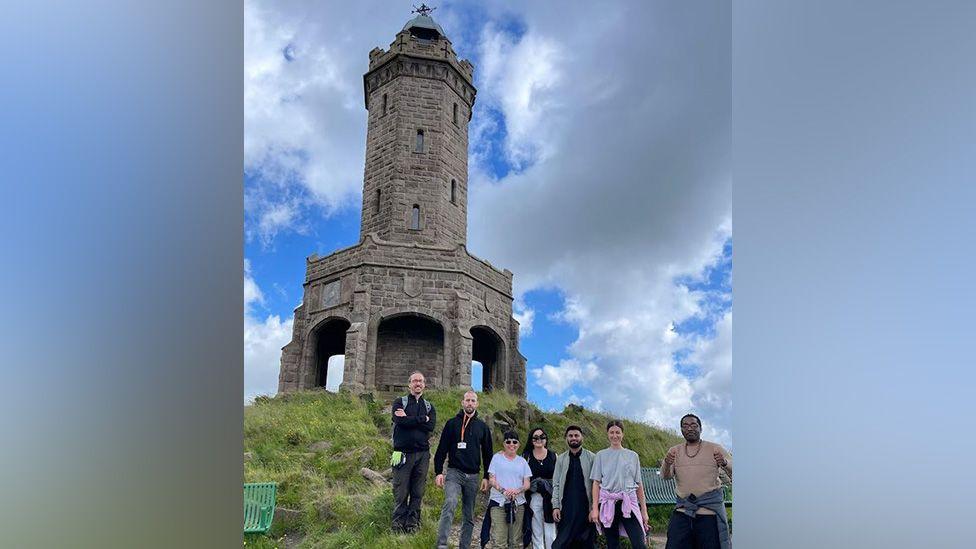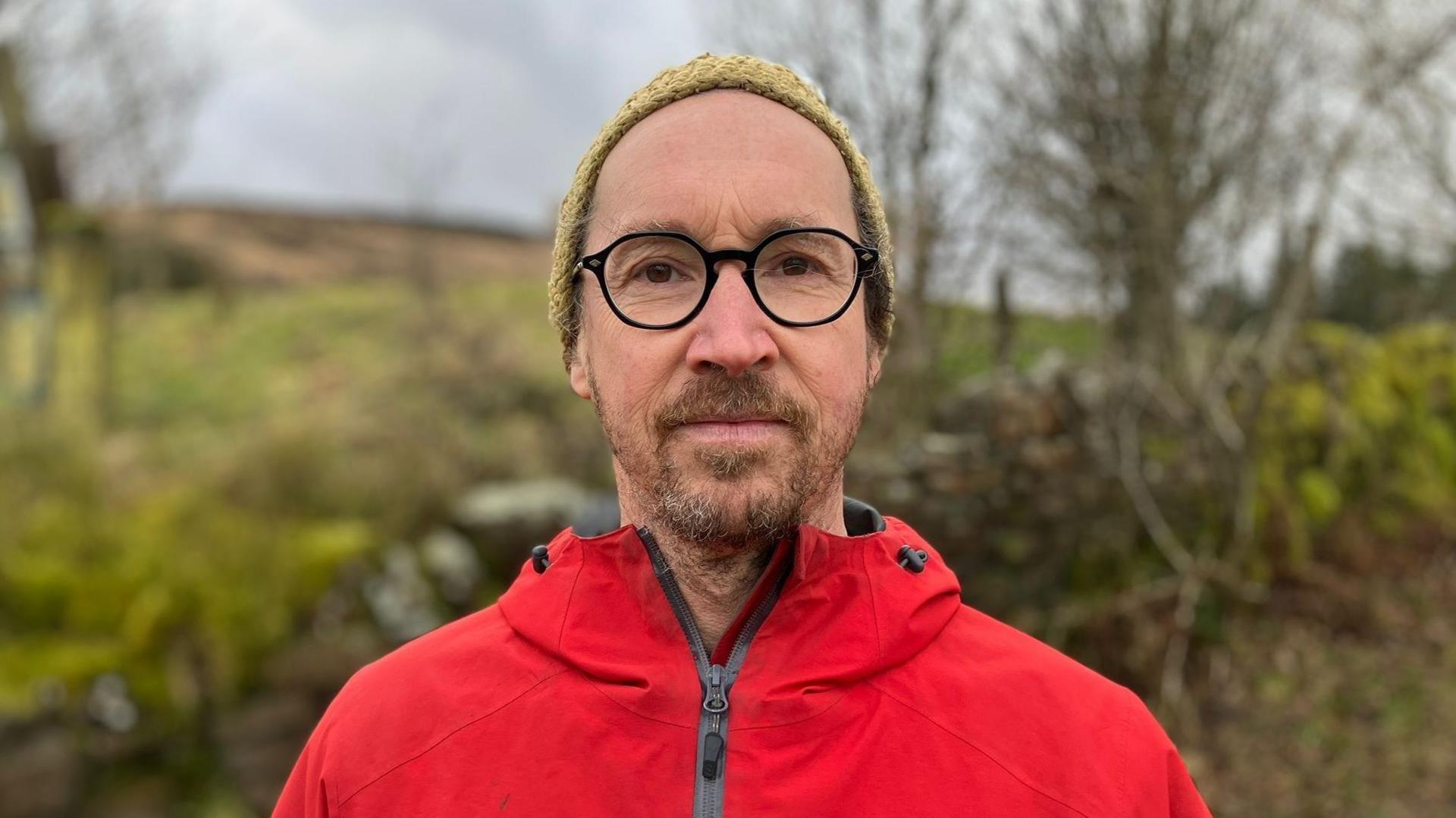County's working-class history to be celebrated

The WORK/LIFE project will examine rural leisure for working families in Lancashire's mill towns focusing on picturesque villages such as Roughlee
- Published
The working class history of Lancashire is being explored through two new community-led projects funded by Historic England.
The significance of Pendle Hill and Jubilee Tower on Darwen Moor to mill workers will be examined, as those from small villages used to retreat to the countryside.
John-Henry Phillips from Historic England, which is giving grants to 30 sites across the country, said the importance of the areas to local workers would be celebrated, along with the people and places at the heart of its history.
He said rural and coastal areas "became a sort of early place for leisure" for mill workers.

Lancashire Wildlife Trust secured the funding to explore Jubilee Tower's relationship with Darwen and its people
"It's about how workers from the small villages would enjoy the local countryside as a sort of retreat from the way they were existing by working in the mills," he said.
Lancashire Wildlife Trust has secured a £25,000 grant from the Everyday Heritage grants programme for A Silent Right to Roam, a project to explore Jubilee Tower's relationship with Darwen and its people.
Built in 1898 following a successful campaign by packmen, pedlars, farmers and labourers, the tower represents a historic working-class victory that saw 300 acres of moorland passed into public possession, Historic England said.
Today, Darwen is home to rural farming communities and many South Asian communities, whose stories and perspectives will also be shared over a year of co-creation.
Andy Mather, who is leading the project, said it would work with local artists and communities to highlight the role the moors have played in Darwen's past as a place of solace, work, identity and protest.

Andy Mather is leading the A Silent Right to Roam project
The WORK/LIFE project, which received £10,000 from Historic England, will be Pendle Hill Museum CIC's first major exhibition.
It explores the evolving connection between work and leisure and how workers from industrial towns embraced rural leisure facilities in the 20th century, focusing on the picturesque villages of Roughlee, Barley and Newchurch at the foot of Pendle Hill.
The project will create a commemorative postcard series to celebrate its diverse heritage of working-class leisure in the countryside, and culminate in a co-created exhibition launched with a communal picnic.
Simon Cronshaw, of Pendle Hill Museum CIC, said Pendle Hill had been a place to rest and recover for many generations of Lancashire's workers.
"There are fantastic stories to gather from the old boating lake in Roughlee, or the many thriving tea gardens and inns around Pendle Hill," he said.
Listen to the best of BBC Radio Lancashire on Sounds and follow BBC Lancashire on Facebook, external, X, external and Instagram, external and watch BBC North West Tonight on BBC iPlayer.
Get in touch
Tell us which stories we should cover in Lancashire